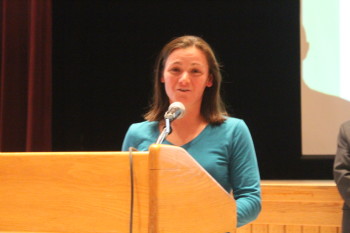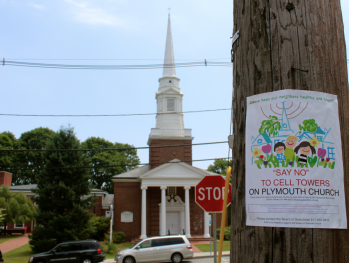Photo: Precinct 1 is open and busy.
2 p.m.: Voter’s participation running high in Belmont
Four years ago, it seemed as if half the world’s media had descended on Belmont for the Presidential Primary as the one-time resident and eventual Republican presidential candidate Mitt Romney was voting at his home precinct at the Beech Street Center.
Satelite television trucks, bus loads of press from around the country and world and secruity forces clogged Beech Street as the spectical attracted residents and people from around the area.
What it didn’t do was increase voter turnout. In 2012, in which both parties were fairly secure in their national candidates – President Obama was running unopposed and Romney was stretching his lead in the Repubican primary – turn out in Belmont was fairly anemic, just under 23 percent of voters casted ballots for a total of 3,835 residents taking the time to vote.
This year, with active races in both parties, Belmontians are taking advantage of the great weather to make their ways to their polling places, according to Belmont’s Town Clerk Ellen Cushman.
“We are averaging 500 to 600 voters so far,” said Cushman at 1 p.m., which translates with about 30 percent participation, far exceeding the last primary’s total.
Cushman said Belmont could see up to 50 percent participation if trends hold steady.

